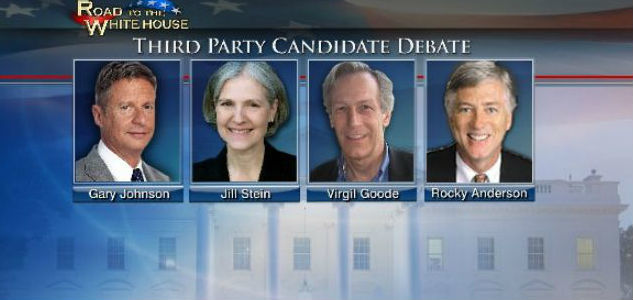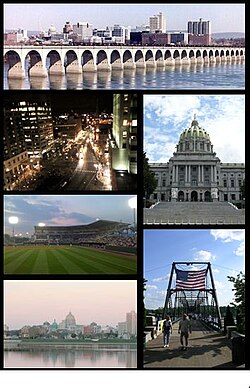
The court date is set. The Green, Libertarian, Constitution Parties are gearing up and uniting to fight for a chance to govern the 12.7 million people of the State of Pennsylvania. They are likely to lose. Pennsylvania is a major state but according to an article in Ballot Access News, by election reform and ballot access expert Richard Winger, Third Circuit Will Hold Oral Argument in Pennsylvania Minor Party Ballot Access Case in February, Pennsylvania is likely to prevent major parties like the Green and Libertarian Party from competing:
During the course of the Libertarian 2012 petition-checking litigation, the state courts issued some good precedents. Specifically, signatures are not invalid just because the signer only wrote down the month and day, but not the year, in the “date” column; and signatures are not invalid if the signer moved within the same county and hadn’t yet re-registered. If those rules had been already established, the Constitution Party might have also taken the risk of having its petition validity determined by the state courts.
The three parties had filed a somewhat similar lawsuit a few years ago, but that was during an odd year when none of them had actually petitioned for that year’s election. That case was also dismissed on standing, and in that case, the Third Circuit didn’t even ask for oral arguments, but in the current case, the Third Circuit will hold oral arguments.
Threatening major fines to legitimate organizations attempting to participate in the election process is outrageous. Any national grassroots movement has to now think twice before attempting a signature drive in the state fearing the outrageous $110,000 fine. There is more to come in other areas of Pennsylvania election changes too. In a good article in the the Millburn Tribune, a local Pennsylvania paper, there is more information on the plans of the bicameral cameral Harrisburg legislature:
The Legislature’s state government committee held a hearing last week on a package of bills that includes tougher penalties for voter intimidation and a ban on promotional materials inside polling places. The bills come up as the state’s controversial voter identification law remains in legal limbo, blocked from taking effect by a state appeals court judge’s order. The law passed in March 2012 has never been enforced, but it has resulted in confusion and anger among poll workers told they had to ask for ID and voters told they didn’t need to show it. Like the voter ID law, a proposed ban on promotions in polling places could create conflict between voters and those who are supposed to be assisting them, advocates worry.
Local government is where much of the power over elections remains in the United States and Pennsylvania is no different. More information on Pennsylvania’s system of local government can be found in the Pennsylvania Manual, a comprehensive guide to Pennsylvania’s government, release by the state for the last 200 years:
All of Pennsylvania is included in one of the state’s 67 counties and each county is then divided into one of the state’s 2,562 municipalities. There are no independent cities or unincorporated territory within Pennsylvania. Local municipalities are either governed by statutes enacted by the Pennsylvania Legislature and administered through the Pennsylvania Code, by a home rule charter or optional form of government adopted by the municipality with consent of the Legislature.


Leave a Reply